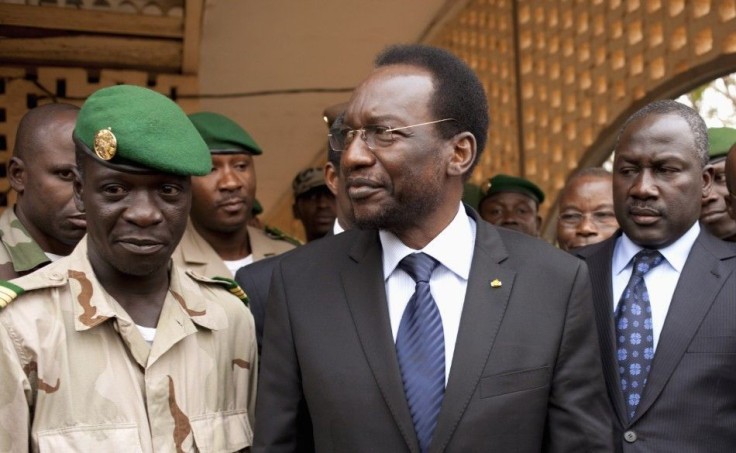Mali Threatened With Renewed Sanctions As Junta Leaders Obstruct Transition To Democracy

The Economic Community of West African States (ECOWAS) has threatened renewed sanctions against Mali's military junta that overthrew the country's democratic government in March.
After a meeting in Abuja on Monday, ECOWAS defense chiefs released a statement condemning the junta's continued interference with the transition in Mali. There was also talk of military intervention, with Nigerian defense minister Bello Haliru Mohammed telling ECOWAS chiefs that his troops are ready for deployment.
As power struggles play out in Mali's capital city of Bamako, northern Mali remains under the control of the Tuaregs, a historically nomadic group from the Sahel region of North Africa.
Defecting members of the Malian military, led by Captain Amadou Sanogo, first seized power from then-President Amadou Toumani Touré on March 22. They voiced disappointment over Touré's apparent weakness in the face of Tuareg rebellions, especially after 160 Malian soldiers in the town of Aguelhok were killed in a January clash.
In April, Sanogo stepped down following condemnations and heavy sanctions from ECOWAS. Interim President Dioncounda Traoré stepped into office and the sanctions were lifted, but it has become clear that Sanogo and his junta still wield considerable power.
Meanwhile, a Tuareg group called the National Movement for the Liberation of Azawad (MNLA) has advanced still further into Mali.
For decades, the Tuaregs have engaged in conflicts with regional governments across the Sahel region, seeking to establish an autonomous homeland called Azawad. But they enjoyed a connection to Libya, and over 1,500 Tuaregs joined Gaddafi's forces during the Libyan revolution of 2011. Upon the dictator's overthrow, many of those fighters fled Libya and settled back in the Sahel, which crosses northern Mali.
Well-trained, well-armed and unmoored, the Tuaregs mobilized more effectively than ever before. The coup in Mali and resulting chaos in Bamako give them clear inroads to advance further into northern areas of the country. They have taken possession of Kidal, Gao and Timbuktu and declared the sovereignty of Azawad.
But religious extremists have fractured the movement. An Islamist group referring to itself as Ansar Dine has contested the Tuaregs' hold over certain areas, including Timbuktu. Unlike the MNLA, these rebels are not concerned with statehood so much as enforcing sharia law.
Conflicts between the two rebel groups have led to widespread displacement of Malian citizens. On top of existing environmental threats such as drought and soil erosion, this disruption has only worsened widespread hunger and poverty in the country.
It was amid this chaos that junta forces handed nominal power to Traoré, who asserted that he would not hesitate to wage a total and relentless war against rebel fighters. But northern Mali remains outside of Bamako's de facto jurisdiction, and the MNLA still considers Azawad to be an independent state.
Traoré's interim term ends on May 22, and ECOWAS recommends that he retain power for another year in order to promote stability in the lead-up to national elections. But Sanogo disagrees. He is calling for a national convention to choose a different interim leader, and may seek the appointment for himself.
ECOWAS members are determined not to let this happen. [F]ailure on the part of the [junta] and their civilian allies to clearly reaffirm their commitment to the transitional arrangement in the next few days, and to refrain from any further interference with the arrangement, will be met with the immediate reinstatement of the targeted sanctions, said the statement.
© Copyright IBTimes 2024. All rights reserved.





















